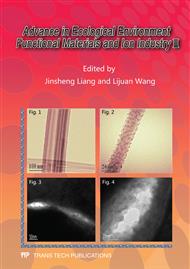p.215
p.218
p.224
p.230
p.236
p.243
p.248
p.254
p.259
Application of Task-Based Language Teaching in University Education of Functional Materials Specialty English
Abstract:
Functional material specialty English teaching aims at fostering technical personnel with a high level of English proficiency; however, the goal is not achieved due to the boring teaching mode of imparting knowledge. In the paper, task-based language teaching, which is student-centered and characterized by learning by doing and using, is applied to the functional material specialty English to arouse initiatives of students through completing tasks in authentic situations, thus developing their English comprehensive abilities and professional skills. The task is to prepare sepiolite nanofibers by means of the high-speed air current superfine technique using natural sepiolite samples as raw materials and then make a presentation to describe the whole process of the experiment in English in the class. Teachers should monitor the progress of the task to help students complete the task successfully and develop a sense of responsibility to cultivate their practical ability of language using. Through the task, English comprehensive abilities and professional skills of students are improved, and specialty English teaching abilities of teachers is developed.
Info:
Periodical:
Pages:
243-247
DOI:
Citation:
Online since:
January 2012
Authors:
Price:
Сopyright:
© 2012 Trans Tech Publications Ltd. All Rights Reserved
Share:
Citation:


